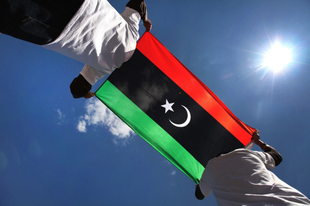“The mandate to produce a comprehensive oil law requires a stable political environment because it has implications which will last for decades,” says Richard Quin, analyst at Wood Mackenzie, the oil consultancy. “There is need for a new set of fiscal terms because the existing ones have turned out to be very tough [thereby discouraging foreign companies]”.
The country manager of an international oil company based in Libya also said it was unlikely an oil law would emerge before a government and parliament have been elected. Given a general distrust of foreign companies, he said, officials were still “scared and can’t make decisions”.
“Success is not rewarded and failure is severely punished, so the more you can delay a decision, the better it is,” he says.
Libya, however, has been able to bring its oil production back to pre-revolution levels of 1.55m barrels per day. Mr Arusi said the country aimed at increasing output further to 1.7m bpd after overcoming power supply difficulties in oilfields operated by Arabian Gulf Oil Company.
He announced this week that his country will seek to expand its Opec quota to 1.7m bpd once it was certain it could produce at that level.
Mr Quin said that Libya’s success at reinvigorating its production has “caught a lot of people by surprise” because the return of international oil companies to the country has been “slower than people imagine”.
Companies have been wary about sending expatriate staff back into Libya because of fears over their safety. These deepened after the January attack by Islamic militants linked to al-Qaeda against the In Amenas gas facility in neighbouring Algeria during which scores of people were killed.
Islamic militants have not targeted oil installations in Libya, but the country is awash with weapons in the hands of militias. It shares long and porous borders with Algeria and other Saharan states, a region where jihadis operate under the banner of al-Qaeda in the Islamic Maghreb.
Oilfields have been frequently invaded by armed locals demanding jobs, and clashes have broken out between militias over who has the right to guard a particular facility. Such interruptions have cost the country around $1bn in lost exports over the past five months, according to Mr Arusi.
He asserted, however, that the state was “getting stronger” and that youths from the militias were being absorbed into the security services. These include a special guard for oil installations under the command of the army which now has some 18,000 members.
But confidence is still low in the new guards, analysts say, and without a new oil law the country is unlikely to produce significant increases in its output.
Indeed, some say it may become difficult to maintain current levels of production without additional investments to improve recovery rates from existing oilfields.
“The current level will not be easy to maintain or increase,” says the country manager of the international oil company, noting that one possible way of increasing output was to invite foreign partners to invest in enhanced recovery operations in acreage owned by the National Oil Company.
“The average recovery factor is 35 per cent,” he says. “Some NOC officials here think it can go up to 45 per cent or 60 per cent. That’s millions of barrels of oil that you can share in a win/win situation with international oil companies.”
He doubted, however, that Libya would go down that route in the near future. “The normal competitive licensing round model is acceptable to the public, but a direct negotiation with any company invites trouble [in the form of allegations of corruption],” he said.
(Source: Financial Times)



